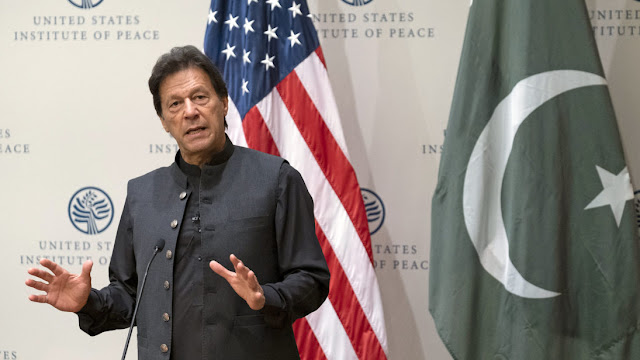Investigating the Driving forces in Pakistan's International strategy
Investigating the Driving forces in Pakistan's International strategy
Pakistan's international strategy can be perceived concerning three motivations: standardizing, statist, and primary. To begin with, the regularizing drive is a constitutive component of the Pakistani country state project, including philosophical and self-definitional sayings like culture, values, religion, and history because of its Islamic character. The key inquiry is how much Pakistan's Islamic character gives clarifications to its international strategy when global relations writing thinks about the public interest as a more solid indicator of international strategy than personality or belief system. Second, the statist strand in Pakistan's international strategy shows a way reliant obsession with a customary worldview of safety as a guard against outer dangers. These local danger insights radiate from two of its nearby neighbors: from Afghanistan, through the Durand Line struggle; from India, over Kashmir, it is the central security problem. Third, the primary drive is demonstrative of strategy inputs from the global framework, and, explicitly, incredible controls over which Pakistan practices little control. The developing key contention between the US and China, for example, straightforwardly influences Pakistan's international strategy as Pakistan endeavors to explore between the two powers without risking its relations with both of them. These three objectives give an understanding of Pakistan's two key international strategy objectives: accomplishing monetary reclamation and controlling customary security.
Regularizing aspects of Pakistan's international strategy
Helps Islam as out clarification for Pakistan's international strategy since autonomy or does international strategy need to accomplish more with the fulfillment of public interest targets? The Islamic character is many times conjured as a critical component in the main Head of the state of Pakistan Liaquat Ali Khan's evading of an authority greeting from the Soviet Association in 1949 and, all things considered, visiting the US in May 1950 because the "heathen" socialist philosophy of the Soviet Association messed with Pakistan's strict responsive qualities. This philosophical aspect was helpfully saved when it came to China, the balancing socialist power. Pakistan perceived Socialist China as soon as 1950 and started two-sided relations with the Chinese state regardless of commitment to military guard partnerships with the US.
The transaction of Islamic character and public interests is likewise clear in Pakistan's effort to the Muslim world. This effort was sketchy in the underlying years as Pakistan's public interest directed a favorable Western international strategy and a less energetic reaction to Middle Easterner patriotism. In 1956, Pakistan's State leader Husain Shaheed Suhrawardy, mourning on the condition of the Muslim world, repeated: "zero in addition to zero in addition to zero in addition to zero is after all equivalent to that, zero."
Public interest directing international strategy decisions is a subject both for Pakistan and for the Muslim states, Pakistan has conjured as its partner after India denied Article 370 giving Jammu and Kashmir semi-independent status in August 2019. The Pakistani Unfamiliar Priest as of late faulted Saudi Arabia for its absence of help in gathering a unique meeting of the Association of Islamic Collaboration on Kashmir, which came after it decreased its guide for Pakistan. This is a little illustration of how standardizing vision — fortitude, as a Muslim-greater part country, with Pakistan in its position on Muslim-greater part Kashmir — matters progressively less in unfamiliar policymaking. This, joined with the Muslim nations' quest for harmony with Israel, shows changing key real factors that Pakistan's international strategy should battle with from here on out.




Comments
Post a Comment
If You Have Any Doubts, Please Let Me Know